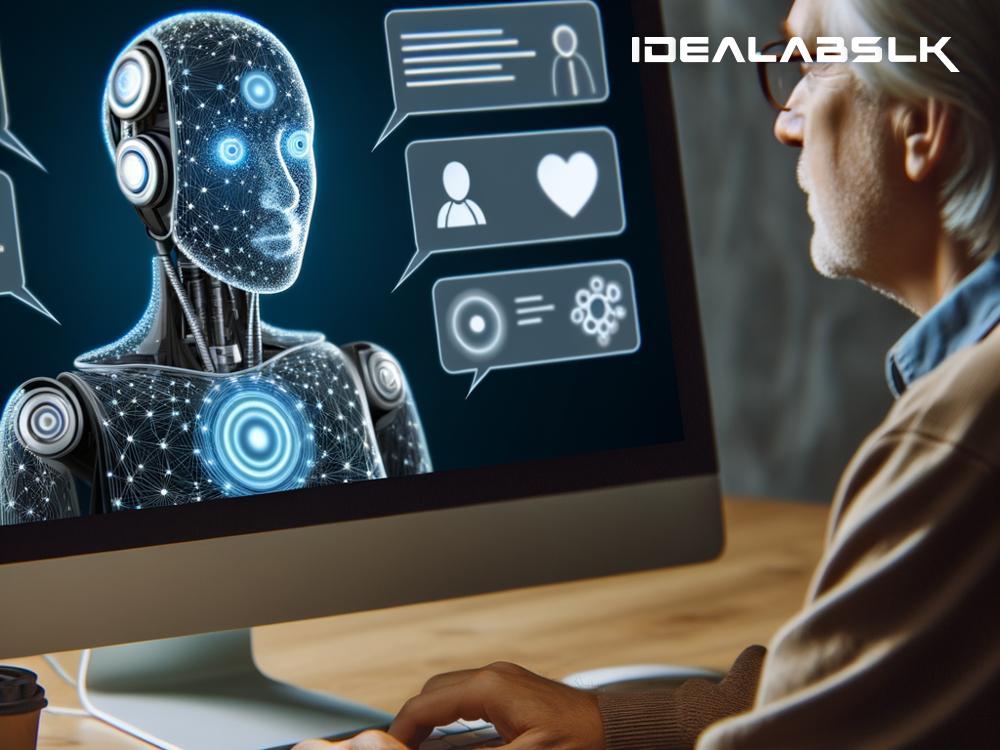Title: Unveiling the Future: How Technology is Revolutionizing Our Approach to Mental Health
In recent years, the conversation around mental health has taken a significant turn. With growing awareness, the stigma is slowly dissolving, opening up new avenues for understanding and treating mental health issues. One of the most groundbreaking shifts in this domain has been the introduction of technology - particularly Artificial Intelligence (AI) and virtual platforms - in diagnosing and providing therapy for mental health conditions. Let’s dive into how technology is changing the game in understanding and managing mental health.
The AI Revolution in Mental Health Diagnosis
Imagine sitting in front of your computer, answering questions or talking about how you feel, and with those few interactions, a sophisticated AI algorithm can help identify potential mental health issues. Sounds like something from science fiction, doesn't it? But it's quickly becoming a reality. AI-powered diagnosis tools are transforming the landscape of mental health care by providing faster and potentially more accurate assessments.
Why is this revolutionary?
-
Speed: Traditional diagnosis methods can be time-consuming, often requiring multiple sessions with a professional before a diagnosis can be made. AI can drastically cut down this time, offering immediate insights.
-
Accessibility: Many people live in areas where mental health professionals are scarce. AI-powered tools can be accessed from anywhere, breaking down geographical barriers to care.
-
Removing Bias: Human diagnosis can sometimes be influenced by a practitioner's own biases or experiences. AI operates on data, potentially offering a more objective perspective.
While the thought of a machine assessing our mental health may seem impersonal, the goal is to use these tools as an aid, not a replacement for human professionals. It's about enhancing the professionals' ability to make accurate diagnoses and plan effective treatments.
The Rise of Virtual Therapy and Support
Alongside AI diagnostics, virtual therapy sessions and mental health platforms have emerged as powerful tools in the fight against mental health challenges. Through video calls, chatbots, and online support groups, technology is making therapy and support more accessible than ever before.
Virtual Therapy Sessions: Just as video calls have kept us connected with friends and family, they are also connecting patients with therapists. Without the need for travel, more individuals can fit therapy into their busy schedules. Plus, many find it easier to open up from the comfort of their own space.
Chatbots and AI Therapists: For those who aren't ready to speak with a human or need instant support, AI-powered chatbots can offer guidance and coping strategies. These are not meant to replace human therapists but can serve as an immediate form of support, guiding individuals to resources or helping manage anxiety or depressive episodes in real-time.
Online Support Groups: Sometimes, knowing you're not alone can make all the difference. Online platforms offer a space for individuals to share their experiences, struggles, and victories with others facing similar challenges. These communities offer a sense of belonging and understanding that can be hard to find elsewhere.
The Benefits and Challenges
The integration of technology into mental health care comes with its set of benefits and challenges. On the one hand, it's making care more accessible, breaking down the barriers of time, geography, and stigma. It's offering new ways to understand and manage mental health, empowering individuals with tools and resources at their fingertips.
However, there are challenges to address, such as ensuring the privacy and security of personal data, understanding the limitations of AI, and making sure these technologies are inclusive and accessible to all, regardless of socio-economic background.
Looking Forward
As we continue to navigate the evolving landscape of mental health care, it's clear that technology will play a pivotal role. The fusion of AI-powered diagnostics, virtual therapy, and online support communities is not only changing how we understand mental health but is also reshaping the ways in which we can access and receive care.
This journey is just beginning. By continuing to develop and refine these technologies while addressing the associated challenges, we can look forward to a future where everyone has the tools and resources they need to not just manage but thrive in the face of mental health challenges.
In embracing technology, we're not just transforming mental health care; we're revolutionizing it. The path ahead is promising, paving the way for a world where mental health is understood, accessible, and openly discussed, without fear or stigma. As we venture into this new era, one thing is clear: the future of mental health care is bright, and it's digital.

